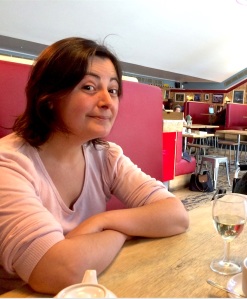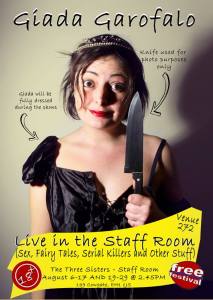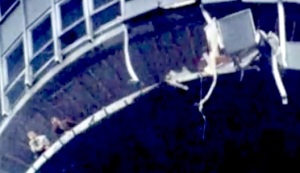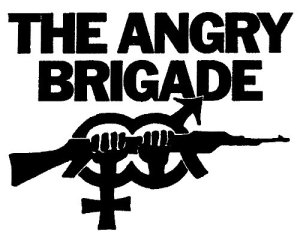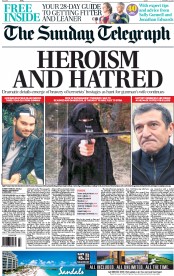
Angry anarchist Stuart Christie
This morning, Stuart Christie (who knows about such things) commented on a 2015 blog of mine entitled The Angry Brigade, British anarchists – the real bombers were never arrested?
Stuart’s comment was:
What complete and utter bollocks from your friend ‘Sam Taylor’. The four people arrested at 359 Amhurst Road had only recently moved there, in the spring of 1971, and were living quietly and clandestinely keeping off the radar, the identities of at least two of them having been discovered by the police and recently published in Hue and Cry. They were never a ‘collective’ in any sense of the word. ‘Sam’s’ account is a concoction of urban myths and befuddled memories.
Stuart told me this afternoon he has “nothing really to add, just trying to put that little canard to bed”.
But he sent me a copy of Edward Heath Made Me Angry, the third party of his trilogy memoir, with permission to quote/extract from it.
For those who don’t or can’t quite remember that time, I think this section from Stuart’s book gives a good flavour.


Part 3 of Stuart’s fascinating memoir
What was loosely called the ‘Angry Brigade’ had received its baptism on 22 May the previous year with the discovery of a bomb in the foundations of the new high security police station in Paddington. This had been followed on 30 August by a bomb at the Putney home of Sir John Waldron, the Commissioner of Police.
Following the bomb attack on his home, Sir John had made it the top priority to capture those responsible and ordered a complete reorganisation of the Special Branch. Ferguson Smith, the head of Special Branch, was promoted to the rank of Deputy Assistant Commissioner and the heads of its three main sections – Operations, Ports and Administration – to Commander. For Waldron it was now something personal.
I now knew why Palmer-Hall had asked such apparently irrelevant questions when he was interviewing me about the First of May Group attacks on Iberia Airlines at Heathrow. He had mentioned Roehampton and the West End, places nowhere near Heathrow.
On 8 September, a week after Waldron’s house had been targeted, the Chelsea home of the new Conservative Attorney General, Sir Peter Rawlinson QC, had also been bombed. He, too, had been successful in suppressing the news. It was Rawlinson who had defined the Tory no-holds-barred policy on ‘law and order’ in a pre-election speech to the Society of Conservative Lawyers. His speech was the opening engagement of a new class war — the Tory equivalent of the Confederate forces firing on Fort Sumter on 12 April 1861.
One can understand why Robert Carr might have been bitter. This was where ‘Butch Cassidy and the Sundance Kid’ came in. They were the signatories on the letter claiming responsibility for the attack on his house. Rawlinson’s bomb had been claimed by the ‘Wild Bunch.’ Albert Meltzer had also been asked why people would use those names when carrying out ‘outrages.’ ‘What names should they use – their own?’ he replied.

Stuart was cleared in 1972 of being part of the Angry Brigade
Before Carr’s house was bombed, only the police and a few news editors had heard of the Angry Brigade. But the name had been used a month earlier in a note to the underground newspaper International Times (IT) claiming responsibility for a machine-gun attack on the Spanish Embassy on the night of 4 December. The machine-gun used, a Beretta M1938-42, was later shown to have been the same one used in the First of May Group attack on the American Embassy in Grosvenor Square three years earlier. Overnight, the ‘Angry Brigade’ had become headline news — and every pundit had his own explanation as to its origin.
How the name ‘The Angry Brigade’ came about, will probably never be known with certainty. It doesn’t really matter. Fiction writers and academics have tried to slot in the Angry Brigade with the student movement or middle-class dropout hippies. One writer wrote a fantasy novel called The Angry Brigade, which he claimed was written from taped interviews with them, which he later destroyed. He, too, portrayed the Angry Brigade as student dropouts – caricatures of the caricatures. On top of this, they were all on drugs.
The names ‘Angry Brigade,’ like ‘Butch Cassidy and the Sundance Kid,’ and the ‘Wild Bunch’ were intended to be light-heartedly ironic. They could equally have used ‘William Brown and the Outlaws.’ The names were chosen, presumably, in an attempt to avoid the quasi-military or political pretentiousness of those used by other action-oriented groups of the times. And although I was never present when any of the communiqués were written, I always imagined the surreal telegraphese of the language of the communiqués to have been inspired by the Jack the Ripper ‘Dear Boss’ letters, and written in surroundings similar to that depicted in Ilya Repin’s famous painting of the Zaporozhie Cossacks Writing a Mocking Letter to the Turkish Sultan.
The Carr bombing brought massive pressure to bear on Scotland Yard from the Cabinet Office. The investigation, led by Detective Chief Superintendent Roy Habershon under his regional senior officer, Commander Dace, was given top priority. With this new authority, Habershon immediately recruited a team of around 30 officers from the Flying Squad and the Special Branch, a group which soon became known as the ‘Bomb Squad.’

Stuart Christie’s mugshots in General Franco’s Fascist Spain

BACKGROUND: Stuart Christie was accused of being part of the Angry Brigade but, in a 1972 trial, he was acquitted of related charges.
Before that, back in 1964, he had been arrested in Spain for possession of explosives, allegedly to assassinate Spain’s Fascist head of state General Franco. He faced a military trial and possible execution by garotte but was, instead, sentenced to twenty years in prison.
He was released after three years, according to the Spanish authorities, after a plea to them from his mother.
He has written about this time in his book Granny Made Me an Anarchist: General Franco, The Angry Brigade and Me. Back in 2010, investigative journalist Duncan Campbell and Republican novelist Ronan Bennett‘s screenplay based on the book was on ‘the Brit List’ – the prestigious annual list of “Best Unproduced Screenplays from the UK“.
There is currently a 72-minute documentary about The Angry Brigade on YouTube. I can’t guarantee the facts are true…



















